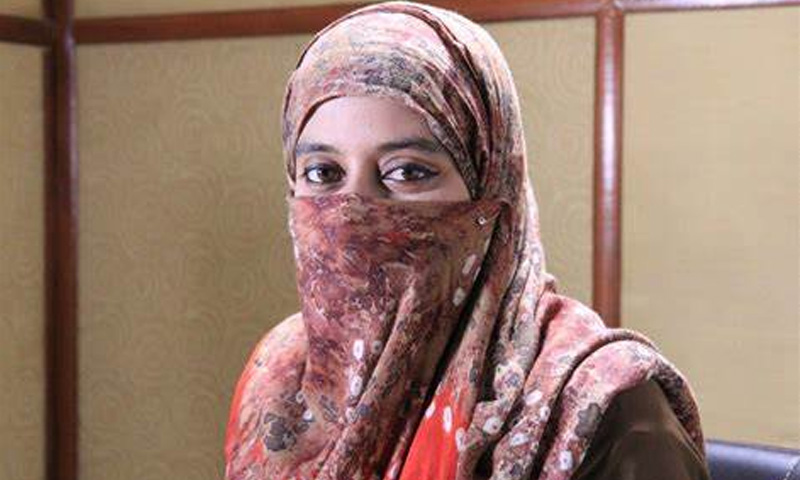- Web Desk
- 4 Hours ago
Expulsion of Afghan Refugees and Unintended Consequences for Pakistan
In August this year, the Afghan Taliban were seen celebrating their two-year rule in Kabul, but their relations with their “long-time ally” and ‘strategic-depth policy drivers’ did not seem to be moving in a positive direction as opposed to the time when the group initially took hold of Afghanistan.
During the last few months, relations between the Taliban and Pakistan took a downward turn in all aspects.
Pakistan continues to blame the Taliban for contributing to the deterioration of the security environment in the country by providing “safe heavens” and “hideouts” to the Tehreek Taliban Pakistan (TTP) members and leadership. At the same time, Islamabad keeps urging Kabul to take “strong action” against the militants.
Pakistan’s Interior Minister Sarfaraz Bugti recently said that out of the total of 24 militant attacks carried out in Pakistan, 14 of them, including suicide blasts, were perpetuated by Afghan citizens.
In response, the Islamic Emirates spokesman, Zabiullah Mujahid, said on the X messaging platform that Afghan refugees were not involved in any attacks around the country, adding that Islamabad seemed to be harassing the refugees under various pretexts.
A few days later, however, Pakistan’s Foreign Office Spokesperson, Mumtaz Zahra Baloch told reporters during a weekly briefing that Pakistan had already shared evidence with the authorities in Afghanistan regarding TTP hideouts in the country.
She added, “We have urged with the interim Afghan government to take concrete action against these TTP elements, dismantle their networks, and prevent terrorist attacks from across the border into Pakistan.”
On the other hand, Afghanistan officials refuted Pakistan’s claims, saying thatTTP was Islamabad’s “internal matter” and a result of Pakistan’s own policies.
, Afghan Interior Minister, Sirajuddin Haqqani, said in a statement that since dealing with the TTP was Pakistan’s internal matter, the country should stop making Afghanistan a scapegoat for it.
As a result of the ongoing blame game, together with a recent rise in the number of militant attacks across the country, the Pakistani government in October ordered all illegal immigrants, including 1.73 million Afghan nationals, to leave the country or face expulsion. The move came shortly after the revelations made by Bugti regarding the involvement of Afghans in militant attacks.
However, the recent decision of the government of Pakistan to return the “illegal” migrants residing in Pakistan would result in the worsening of the already stalked and fragile relations between Pakistan and Afghanistan. The country has already suffered a lot due to its economic situation while on the one hand, the decision will further deteriorate the security environment for Pakistan.
The expulsion process has taken momentum, with thousands already fleeing. According to the various reports, around 233,000 Afghans have been repatriated, On the contrary, the sentiment and support by the militant groups for these Afghans have also increased. Among them, the most active is the Tehreek Taliban Pakistan (TTP).
Over the last few weeks, TTP has left no stone unturned to criticize and maneuver the masses to their stance and ideology.
The group has released various statements in the support of the Afghans who were repatriated while simultaneously criticizing the policy of the government, calling it “inhumane and against the principle of Islam” to expatriate a huge bulge of Muslims without any reason.
Meanwhile, in order to show the masses that they care about their plight, the TTP further called on the Afghan Taliban to take proper care of the repatriated Afghans throughout these challenging times.
Apart from that, they also released their statements in which they highlighted and criticized security officials that were allegedly taking bribes from Afghan refugees and were also involved in mistreating them.
These statements issued by the TTP clearly show a significant shift in their policies. Previously, their strategies were only confined to hard power and the killing of security personnel and civilians to spread terror.
This time, following the takeover of Afghanistan by the Taliban, they have adopted a paradigm shift in their strategies by adopting soft tactics and tools as a means to gain the support of the people, especially the disenfranchised, vulnerable and marginalized class. They consider this soft approach as valuable tool to gain people’s support and present themselves as the saviors and guardians.
The Afghans that left behind all their belongings, household, assets and their whole families in some cases, will naturally have resentment towards the government. This is largely due to the fact that despite living for more than 40 years in Pakistan, they were asked to leave on a very short notice.
The TTP might cash on and exploit the vulnerability of the people to induct them in their organization, making things worse for the Pakistan security environment.
Besides that, in many reports, the ideological and structural links between the TTP, Al-Qaeda, and Afghan Taliban have been highlighted.
According to the United Nations Security Council (UNSC) report. “The link between the Taliban and both Al-Qaida and Tehrik-e-Taliban Pakistan (TTP) remains strong and symbiotic”.
These groups have a greater “freedom of maneuver” under the Taliban. Further, it adds up that the relations between the Taliban and TTP were “tightly bonded” and “unlikely to dissipate”. It has also been reported that TTP personnel are actively taking up training in Al-Qaeda cells.
A video released from their catalogue “Rasmay Muhabbat” showsTTP members throwing a homemade grenade towards the security forces’ barrack from the other side of the border.
These instances make it very clear that TTP has great freedom under the supervision of the Afghan Taliban, whereas the Al-Qaeda might be giving them the training and the support to enhance their abilities to fight
Despite their influence, the Afghan Taliban does not show any sign of putting a lid to these attacks. On the contrary, due to the resentment among the Afghan Taliban for the recent Pakistan decision to expel the Afghan refugees the Taliban might even give them more freehand to orchestrate further attacks on Pakistan.
All in all, the soaring resentment of the people due to the forced expulsion, together with the growing support for these Afghans by the TTP, will further deteriorate the security atmosphere of the country. Meanwhile, the strengthening of the relations between the Afghan Taliban, TTP, and Al-Qaeda will continue to ring alarm bells for Islamabad.
Given the circumstances, is imperative for policymakers and the law enforcement agencies (LEAs) to make a shift and design their strategies that might not create resentment among the masses. And these policies shall also take into account the soaring propaganda tactics employed by the TTP.






